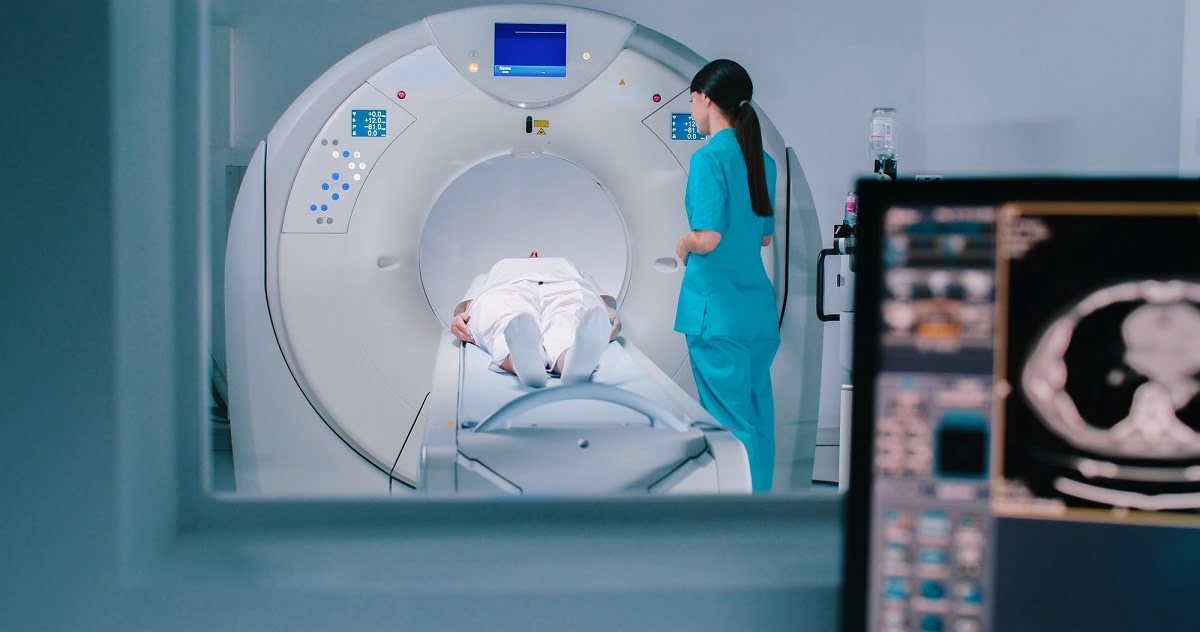Why is a CT Scan Important?
CT scans have become an indispensable part of medical diagnostics due to their ability to detect and evaluate a wide range of conditions with high accuracy. Here are some key reasons why CT scans are important:
1. Detailed Imaging: CT scans provide highly detailed images of the body's internal structures, making them more informative than standard X-rays. This allows doctors to detect issues that may not be visible with other imaging techniques.
2. Quick and Accurate Diagnosis: In emergency situations, such as after a car accident or when a patient has severe abdominal pain, a CT scan can quickly provide crucial information about internal injuries, bleeding, or organ damage, enabling prompt and effective treatment.
3. Detection of Cancers and Tumors: CT scans are frequently used to identify and monitor tumors in organs such as the lungs, liver, kidneys, and brain. They help in staging cancers, assessing the extent of the disease, and planning treatment options like surgery, chemotherapy, or radiation therapy.
4. Evaluation of Bone Fractures and Injuries: For complex fractures, particularly those involving joints (like the hip, shoulder, or ankle), a CT scan provides a clear, three-dimensional view of the bone and helps in surgical planning and treatment.
5. Guidance for Medical Procedures: CT scans are often used to guide certain medical procedures, such as biopsies or the placement of stents. By providing real-time images, they help doctors precisely target the area of concern.
6. Monitoring of Chronic Conditions: For patients with chronic conditions, such as heart disease or inflammatory diseases, CT scans are used to monitor the progression of the disease and evaluate the effectiveness of treatments.
Common Types of CT Scans
There are various types of CT scans tailored for specific parts of the body:
1. CT Head/Brain: Used to diagnose strokes, brain injuries, tumors, and bleeding in the brain.
2. CT Chest: Helps evaluate lung diseases, infections, pulmonary embolisms, and tumors.
3. CT Abdomen and Pelvis: Assesses issues like kidney stones, appendicitis, tumors, and inflammatory diseases in the digestive tract.
4. CT Angiography: Focuses on the blood vessels to detect blockages, aneurysms, and other vascular conditions.
5. CT Spine: Examines the vertebrae for fractures, disc herniations, and spinal cord issues.
How is a CT Scan Performed?
The CT scan procedure is generally quick and straightforward:
1. Preparation: Patients may be asked to fast for a few hours before the test, especially if a contrast dye will be used. The contrast dye, which may be swallowed, injected, or given as an enema, helps highlight specific areas of the body, making them more visible in the images.
2. Positioning: The patient lies on a motorized table that slides into the CT scanner, a large, circular machine. The technologist may use straps or pillows to help the patient stay still during the scan.
3. Scanning Process: The scanner takes a series of X-ray images from different angles as it rotates around the patient. The X-ray data is then processed by a computer to create cross-sectional images, which can be viewed on a monitor.
4. Duration: The scan typically takes about 10 to 30 minutes, depending on the area being examined and whether a contrast dye is used.
5. Post-Scan Care: If contrast dye was administered, the patient may be advised to drink plenty of fluids to help flush it out of their system. There are usually no other special post-scan instructions, and patients can typically resume normal activities immediately.
Who Should Consider a CT Scan?
CT scans are recommended for individuals experiencing symptoms or conditions that require detailed imaging for accurate diagnosis. Common scenarios include:
1. Trauma and Injury: Patients with suspected internal injuries from accidents, falls, or sports injuries often require a CT scan to assess potential damage to organs, bones, and blood vessels.
2. Persistent Pain or Symptoms: Patients with unexplained or persistent pain in the head, chest, abdomen, or pelvis may benefit from a CT scan to diagnose conditions like tumors, infections, or inflammatory diseases.
3. Suspected Stroke or Brain Issues: When a stroke, brain bleed, or neurological issue is suspected, a CT scan of the head provides critical information for immediate treatment.
4. Cancer Screening and Monitoring: Individuals with a history of cancer or at high risk may undergo CT scans for screening, diagnosis, and to monitor the effectiveness of treatment.









